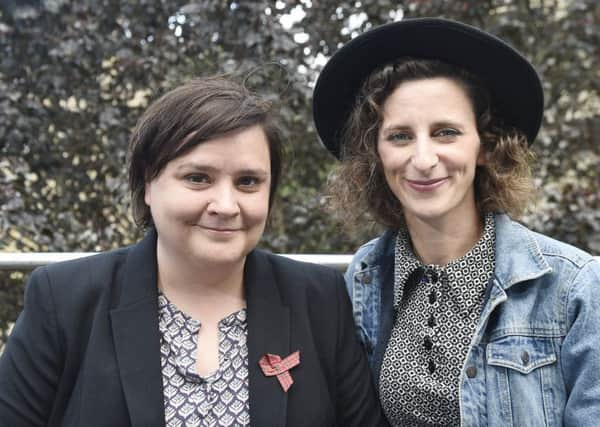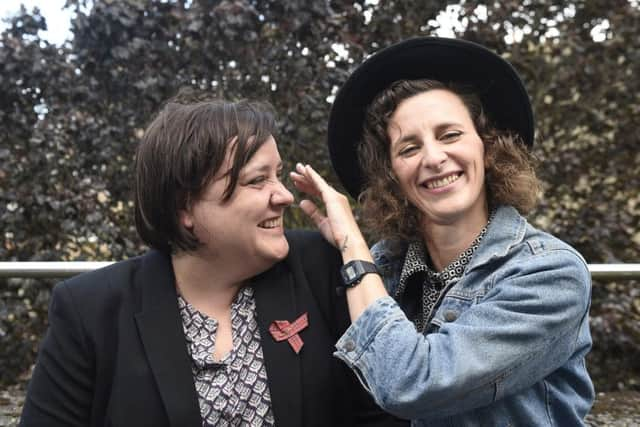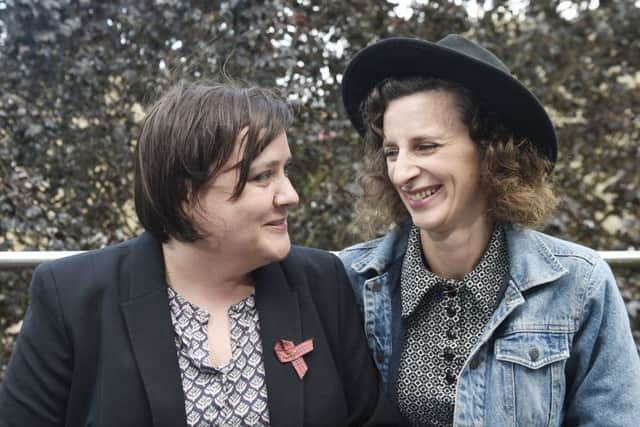Seeing the funny side of depression at the Festivals


Have you heard the one about the comedian with mental health issues? Of course you have. It’s a truism, a cliché – the tears of a clown and all that. Truth is, according to the studies that have been done, comedians are no more neurotic than the general population. What they have though is a platform which a casual flick through the Fringe brochure will tell you is increasingly being used to tackle not just what it’s like to live with depression or anxiety, but the stigma that still goes with it.
In 2015, shows by Bryony Kimmings and Tim Grayburn, Le Gateau Chocolat and Sofie Hagen brought mental health full square into the Fringe comedy arena. It was also the year that the first Gala for Mental Health took place. But getting laughs out of panic attacks and crippling depression, suicide and self-harm was no fad. Hagen is back this year and Chris Gethard is in Edinburgh for the first time with his show, Career Suicide about, yip, you got it. And Felicity Ward, who is sitting with Susan Calman in a quiet corner of a Pleasance bar – the pair are mates and describe themselves as a “two-person support network” – is back with her show 50% More Likely to Die.
Advertisement
Hide AdAdvertisement
Hide AdThe plan was that the two of them would tell me about why mental health is indeed a laughing matter. But, rightly so, we start with how they – two women who live with both depression and anxiety (Ward was diagnosed with an anxiety disorder and depression in 2011 and Calman has lived with depression “for as long as I can remember”) are coping with their first week at the Fringe.


“It can be a very lonely time,” says Calman, whose show, The Calman Before The Storm, is sold out – even the three extra shows she added. “I’ve had some of the worst breakdowns in my life in this city during the Fringe.” Happily, this year is going well because Calman knows how to look after herself. “I know when I get tired it’s not good for my mental health so, apart from the Mental Health Gala, I’m not doing any late night gigs. No drinking because drinking does not help.” She steers clear of “bad people” and surrounds herself instead with positive people, although she lives on her own in a nice flat. “This is the first year that I feel I’ve got a handle on how to do it without collapsing.” It’s her tenth year.
Ward isn’t a Fringe veteran like Calman, but having appeared on The John Bishop Show and Russell Howard’s Good News as well as Live from the BBC, she’s no newbie. If watching Calman’s show feels like being held in a very safe pair of comedic hands, Ward has a different feel: edgy and jangling with nervous energy. She is also hilarious. “Initially this show was going to be an hour of jokes about mental health statistics,” she says. “I had such a good time with it last year (her show, What If There Is No Toilet?), it’s a massive topic and there’s heaps of stuff to say.” Alas, five days before her first preview – when she had what she says were 20 good minutes of stand-up and 20 minutes of “words” – she left her bag on a London bus. Not great for anyone – her wallet and house keys were in there – never mind for someone with an anxiety disorder, but it was perfect for comedy.
“Ninety per cent of the show is accurate,” she says. “In 24 hours I had my show.” Her eyes swivel upwards. “Thank you comedy gods.”
Calman has talked about her depression on stage and on radio (after the episode of Calman is Convicted in which she did this, the reaction from listeners was the biggest she’d ever received). But it wasn’t until she wrote her new book, Cheer Up Love, that she really opened up. As a teenager she self-harmed and, at 16, she took an overdose and ended up in a secure unit.


“I had never talked about some of the things I wrote in my book to anyone until I wrote them down,” she says. “I wrote it because when I did a show in 2014 about depression I found I was having to change things. I was trying to explain what I was talking about because it wasn’t working. So when they asked me to write the book I thought, good, I can sit down and properly write how it feels.”
What wasn’t working?
“You always feel like you’ve got to have a joke,” she says deadpan. “It’s a comedy show, so you say ‘I tried to kill myself but here’s a little joke about suicide’, rather than ‘I tried to kill myself and that was a really awful thing’.”
Advertisement
Hide AdAdvertisement
Hide AdSo there’s complexity, but comedy was the vehicle through which Calman was able to speak about her mental health for the first time. “In comedy you can say anything you want,” she says. “I think it really is one of the last bastions of completely free speech.”


Awareness of her own mental health doesn’t only inform how Calman handles being a stand up, it informs what she wants to talk about too: “I am more empathetic to others having felt vulnerable and alone. And I think it means I feel more angry about injustice and prejudice.”
According to the 2016 NatCen British Social Attitudes survey, 82 per cent of people asked said they “wouldn’t feel comfortable having someone with depression look after their children” and 64 per cent said they “wouldn’t feel comfortable having them marry into their family”. Given that one in four people experiences mental health problems in their life, 8.2 million people in the UK suffer from anxiety and as many as 10 per cent of people experience depression throughout their lifetime, that makes for quite a bit of – totally unjustifiable – discomfort.
“Since I wrote my book so many of my friends have told me that they’ve been prescribed medication or they’ve suffered from depression or their partner has, or friends,” says Calman. “So many people have said. And the sad thing is I had never asked.”
Calman’s book was about showing that having depression doesn’t mean life is over. And in a sense her Fringe show is a companion piece, proof every night at 6:15pm at the Pleasance that what she wrote was true – depression need not define you. “Part of it is my desire to overcome my depression and just be a bloody good stand-up.”


Ward too hasn’t stayed only within comedy in her exploration of mental health issues. When she still lived in Australia, she made a documentary, Felicity’s Mental Mission, that is now on the school curriculum. Calman and Ward are comedians first and foremost, but they’re serious about mental health. Their commitment is personal and professional.
“The response that you get after shows is an inundation now,” Ward says. “When I made the documentary I had to stop answering emails through my website because it’s so clear how much we are lacking funding and resources because people are telling you that they’ve made six suicide attempts and your documentary is the only thing that has kept them alive.
Advertisement
Hide AdAdvertisement
Hide Ad“And it’s like, ‘woah, I’m not a therapist’. But then last year there were three people who went to see their doctor after seeing my show and that’s really cool. But it’s not why I do it. My job is to make people laugh.”
“Comedy still has to be comedy,” Calman says. “If you want to just talk about depression you do it at three o’clock in the afternoon with a Powerpoint presentation. If you’re doing a show at the Pleasance at 6:15pm or 9pm people want to laugh and so a lot of care is taken with the structure of the shows to make that possible. You let them in, you tell them something, you reassure them – here’s a joke – you spend a lot of time thinking about how to make it palatable.”
“It’s like a card trick,” Ward chips in. “Here’s this, but something else is happening underneath.”
l Felicity Ward and Susan Calman perform at A Gala for Mental Health, Pleasance Dome, 17 August, 11pm. Felicity Ward: 50% More Likely To Die, Pleasance Courtyard, until 29 August; today 9pm; Susan Calman: The Calman Before The Storm, Pleasance Courtyard, until 28 August, today 6:20pm.
l Susan Calman’s book, Cheer Up Love: Adventures In Depression With The Crab Of Hate, is published by Two Roads.